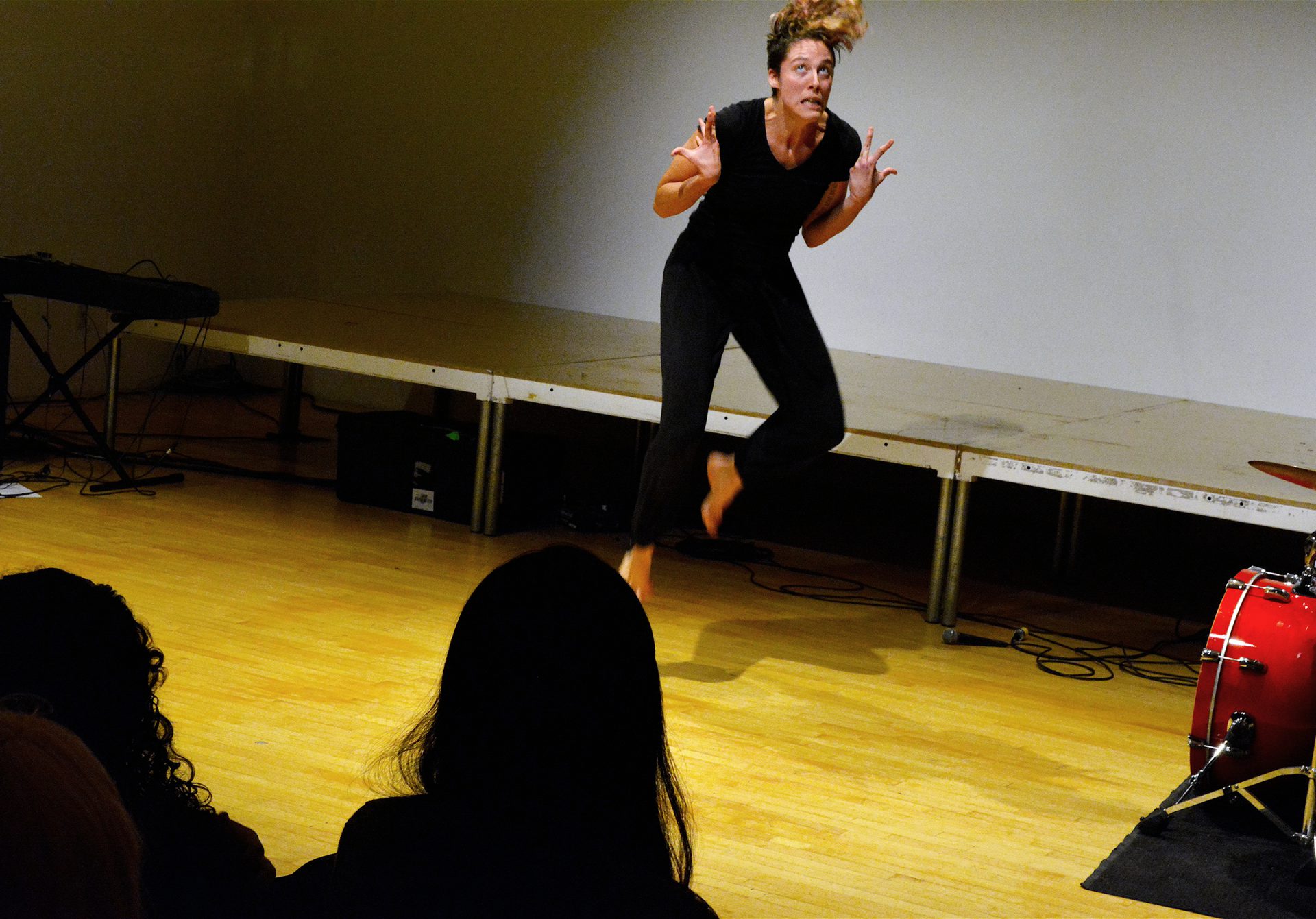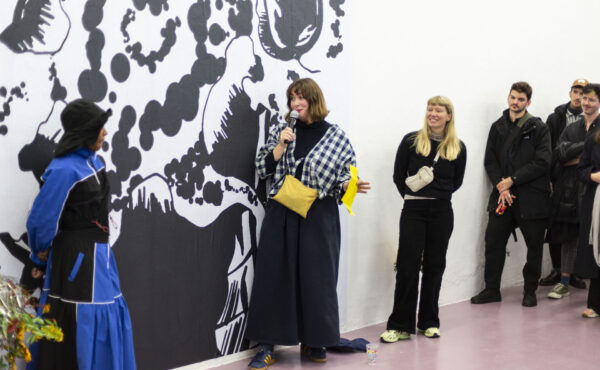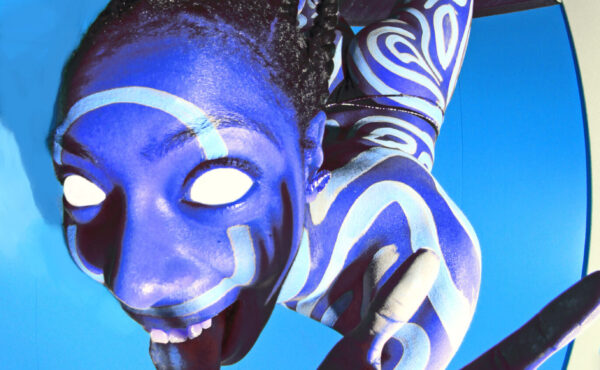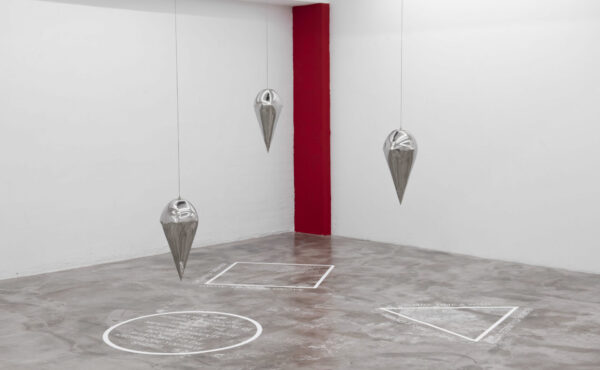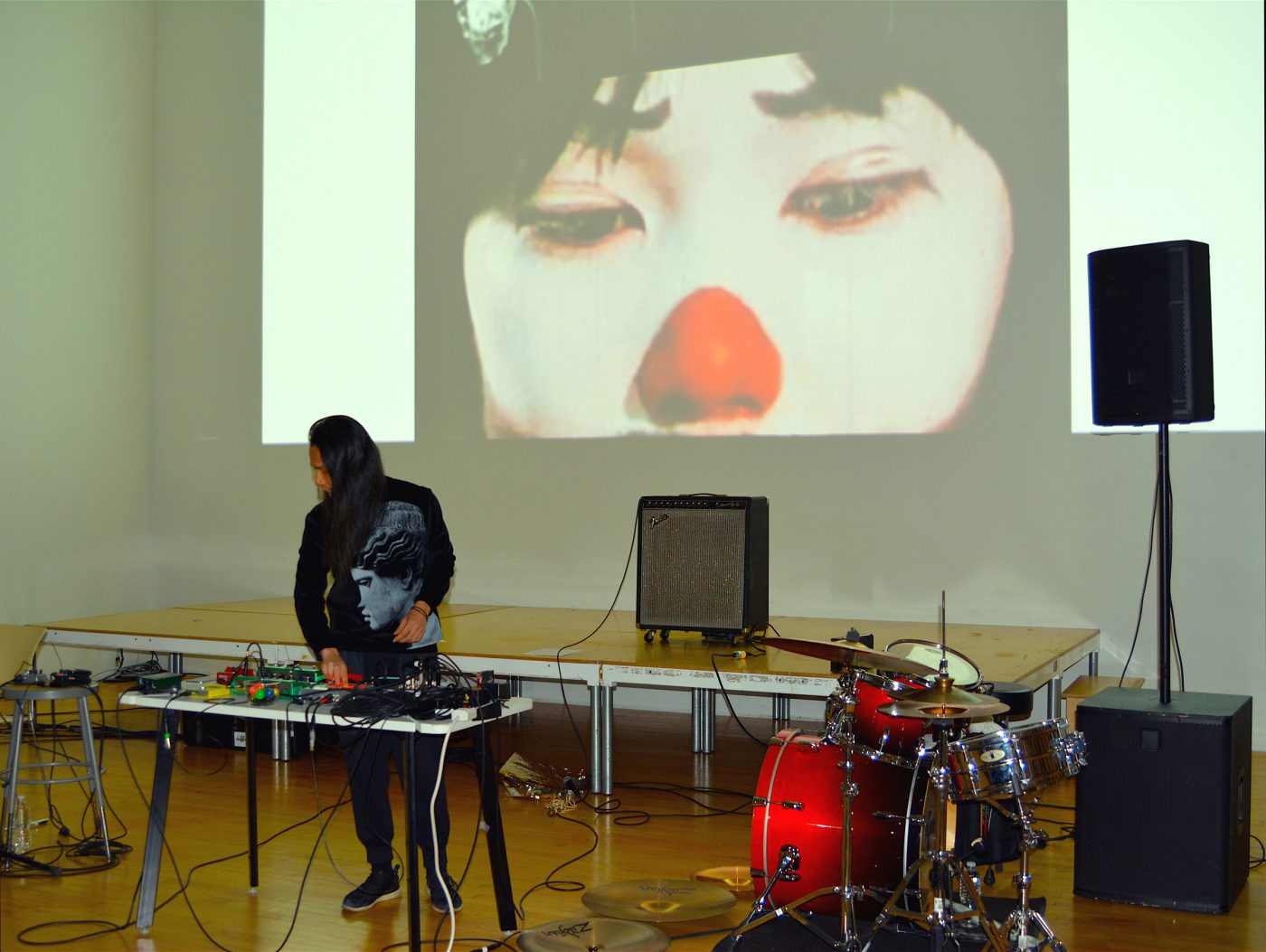
Violations, An Evening of Interpretive Readings of Dennis Cooper’s GIF Novels
‘Blog has been removed.’ In June, this note appeared on DC’s1, the blog that American writer and artist Dennis Cooper had maintained for more than ten years, by updating almost everyday texts to experimental literature and writing, as well as posting his GIF novels. The only response he got from Blogger (a Google-owned platform) was that it was suspended due to a ‘violation of terms of service’. What kind of violation, no one knows.
Dennis Cooper’s work examines the intricate, intimate and intimidating side of violence, sex and beautiful young boys. His books tickle some deep layers of our beings and desires. They narcotize the reader with unfulfilled gay love, and mesmerize with the captivating presence of cruel fantasies. There is an anecdote that even Marilyn Mason disapproved to let Cooper write a cover story on him for an American music magazine.2
After months of complaining to Google, enlisting a lawyer to approach the California-based company and issuing a petition – circulating among artists and DC’s fans – Cooper’s blog has been re-activated.3
In response to this result, and as a celebration ‘of the innovations in writing represented by a series of (Cooper’s) GIF novels’4, the New Museum in New York City organized an event called Violations. This performative evening, co-presented with PEN America (as a part of New Museum Fall 2016 R&D Season with the theme DEMOCRACY), touched upon the freedom to write and the vulnerability of an artwork on social media. This evening gathered a handful of the artist’s colleagues that he admires, that admire him, or both. Among the participants were Aki Onda, M. Lamar, Yvonne Maier, Richard Hell, Dorothea Lasky, and Chris Cochrane with Brian Chase (Yeah Yeah Yeahs) and Niall Jones, who were asked to respond to an ‘assignment’: interpretive readings from one of Cooper’s GIF novels.
So far, he has published three of them. Each one touches upon the author’s same fascinations as we can find in his printed books – disturbing narrative and eerie stylistic. The latest one, Zac’s Freight Elevator (which was temporarily lost when the DC’s blog was deleted), was just released online by Kiddiepunk, a small publisher based in Paris, and launched during the event at the New Museum. But what does it means to read GIFs aloud? And how to read it, when there is practically no text, or when the words are replaced by repeatable sequences of moving images? If we adjust some parameters (for instance, assuming that the screen is a page) it appears almost like something completely natural to do.
The most impressive in Cooper’s GIF projects, is the fact that to create (‘write’) them he uses the same langue as in his paper books. During the panel, he said that he has never had a proper training on how to write a novel, which led him to develop his own way of dealing with fiction. The narrative of the GIF stories is based on their mutual revision. Found animations placed one next to the other in small sequences create moving collages. Their motion frozen in loops create a rhythm, so they can be read like phrases on a page – a sentence is a series of subsequent words, where each one relates to the one that follows. But the visual side is just a surface, an odd mixture of confusions and aesthetic patterns. The stories are deep inside, and archetypes (of young boys or death) become the protagonists. ‘Characters in a novel seem fascist to me’, said Cooper.
Asked by Travis Chamberlain, the curator of Violations, if he ever thought about his books being read aloud when writing them, Cooper denied. On the contrary, his stories require an intimate contact with the reader, which can only be experienced while reading in silence. So the biggest challenge of the event at the New Museum rested on the shoulders of the artists invited to take part.
Aki Onda, a Japanese composer and visual artist based in New York, approached Cooper’s novel with an improvised performance, using unconventional and self-made instruments – from analogue radio and synthesizers to plastic balls. High, often discomforting pitches of sound and stroboscopic light created an eerily atmosphere. It acted more like a voice-over than as a dubbing. M. Lamar (a New York-based singer, composer and multimedia artist) took a more direct position to depicting the GIFs, replacing bitmap images by music and words that appeared on some of them – by singing. His ‘musical performances possess an otherworldly quality, a dark opulence that is simultaneously stunning in its beauty as well as tortured in its despair’5, one can read in the text published on the musician’s website. Weirdly enough, this description could also be used for Cooper’s work.
Zurich-born, New-York based choreographer Yvonne Maier presented another attempt to read aloud, inspired, as she explained, by the beauty of the ‘picture novels’. She designed a set of spoken instructions for a dancer, such as: ‘slow motion explosion’, ‘grass in the field ending with 3D’, ‘Olympic erection’, and commands like: ‘Do it the most understated/ disgusting way.’ Everything turned into improvised theatre, full of disturbing movements, spiced up with humour and compassion for the exhausted dancer. The punk figure Richard Hell assumed that the work has to defend itself and presented a short poem-commentary on Zac’s Freight Elevator, confessing that he had absolutely no idea how they can be read the same way as novels. Another literary interpretive reading was introduced by American poet Dorothea Lasky. The poem she read, accompanied by her own GIF’s glossary, oscillated around the references of spell and mirror, and acted like footnotes to Cooper’s Zac’s Haunted House. At the end, a trio of collaborators, Chris Cochrane, Brian Chase, and Niall Jones, translated the last chapter of the newest html publication, the most violent one, into an apocalyptic battle of shrill sounds.
As a result, the evening brought together an impressive collection of translations and interpretations of Cooper’s work. Only one thing struck my mind; if a novel could be a series of GIFs, why reading it aloud always has to be associated to derivatives of sound? Writing is a performative act. Not only because it refers directly to the body (as we write using our hands), it involves also the performance of thoughts – thinking. And like the animated sequences that create a loop, we repeat patterns in our daily lives in order to exist, to find ourselves and our position in contemporary data-driven reality that is beautiful and terrifying at once.
Violations
An Evening of Interpretive Readings of Dennis Cooper’s GIF Novels
New Museum, New York
16.11.2016
1 http://denniscooper-theweaklings.blogspot.com/
2 http://www.3ammagazine.com/litarchives/nov2001/cooper_interview.html
3 http://denniscooperblog.com
4 http://www.newmuseum.org/calendar/view/1109/violations-an-evening-of-interpretive-readings-of-dennis-cooper-s-gif-novels
5 http://www.mlamar.com/critical-theory/
Weronika Trojanska
is an artist and art writer
